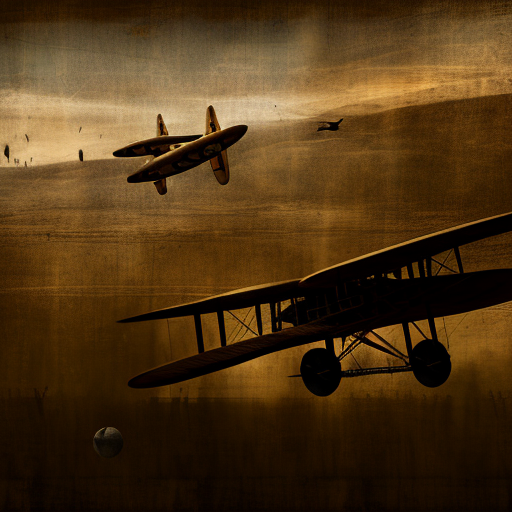The Wright Brothers: Pioneers of Flight
Orville and Wilbur Wright, two bicycle mechanics from Dayton, Ohio, defied the odds and changed the course of history by inventing the world’s first successful airplane. In “The Wright Brothers” by David McCullough, their remarkable journey is chronicled, from their humble beginnings to their groundbreaking achievements in aviation. This captivating biography explores the determination, ingenuity, and unwavering passion that propelled the Wright brothers to conquer the skies.
The Early Years: A Foundation of Curiosity and Innovation
Born in the mid-19th century, Orville and Wilbur Wright grew up in a household that fostered curiosity and innovation. Their father, Milton Wright, encouraged their intellectual pursuits and instilled in them a sense of self-reliance. The brothers’ fascination with flight began at a young age, sparked by their father’s gift of a toy helicopter. This early exposure to aviation ignited a lifelong passion that would shape their future.
From Bicycles to Flying Machines: The Path to Success
Before venturing into aviation, the Wright brothers established themselves as successful bicycle manufacturers. Their experience in engineering and mechanics proved invaluable as they applied their knowledge to the challenges of flight. Through meticulous research, countless experiments, and relentless determination, they developed the three essential components of flight: a reliable engine, a stable airframe, and a system for control. Their breakthrough came with the invention of the three-axis control system, which allowed pilots to maintain balance and stability in the air.
Conquering the Skies: The Wright Brothers’ Legacy
On December 17, 1903, the Wright brothers achieved their ultimate goal: powered, controlled, and sustained flight. With Orville at the controls, their aircraft, the Wright Flyer, soared above the sandy dunes of Kitty Hawk, North Carolina, for a remarkable 12 seconds. This historic achievement marked the birth of modern aviation and forever changed the world.
Despite their groundbreaking accomplishment, the Wright brothers faced skepticism and disbelief from the scientific community and the general public. It wasn’t until several years later, after numerous successful flights and demonstrations, that their invention gained widespread recognition. The brothers continued to refine their aircraft and share their knowledge with other aviation enthusiasts, contributing to the rapid advancement of aviation technology.
The legacy of the Wright brothers extends far beyond their pioneering flights. Their commitment to sharing knowledge and their refusal to patent their invention allowed aviation to flourish and evolve. Their contributions laid the foundation for the aviation industry we know today, shaping the world in countless ways.
Key takeaways from “The Wright Brothers”:
- The Wright brothers’ unwavering determination and relentless pursuit of their dreams led to the invention of the world’s first successful airplane.
- Their background in bicycle mechanics and their innovative three-axis control system were crucial to their success in aviation.
- Their refusal to patent their invention and their commitment to sharing knowledge contributed to the rapid advancement of aviation technology.
As Wilbur Wright once said, “If I were giving a young man advice as to how he might succeed in life, I would say to him, ‘Pick out a good father and mother, and begin life in Ohio.'”
This quote encapsulates the importance of the Wright brothers’ upbringing and the values instilled in them that ultimately led to their groundbreaking achievements.
In “The Wright Brothers,” David McCullough masterfully captures the essence of Orville and Wilbur Wright’s extraordinary journey, highlighting their unwavering determination, innovative spirit, and lasting impact on the world. This biography serves as a testament to the power of human ingenuity and the ability to defy the odds in pursuit of a dream.












